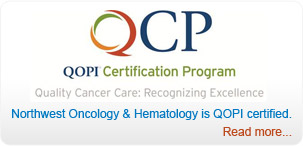Oncology: Communicating with Others
Now that you are facing treatment for cancer, you may have concerns that you want to share. If you do want to talk, you may not know how to start. These ideas may help.
If Talking Helps
Maybe you sense that the people in your life want to know more about what's going on with you. Or maybe you feel that sharing your situation with others will help you to work through your own feelings. Here are some tips that will help prepare you to talk.
Be Open and Honest
People will be more willing to help if they are aware of what you are going through. Talk openly and honestly about your condition, its treatment, and how you are feeling. And if people offer, talk about how they can help you.
Ease Their Awkwardness
People may be afraid to say or do something wrong. Assure them that showing they care is helpful. And let them know that there may be no perfect thing to say.
Expect Different Reactions
People will respond in different ways. Some may seem angry. Others may refuse to hear any more. Still others may seem too upbeat. Understand that each of them means well. People often don't know what to say to someone with a serious illness.
To Family and Friends
-
Don't pressure the person to talk. Just make it known that you are willing to listen.
-
You or the person who has cancer may be feeling angry. This is a normal stage in the coping process. Try not to take the anger personally.
-
Don't make empty statements like "Don't worry. Everything will be fine." Instead, offer true help, such as rides to appointments, or doing housework and errands. And arrange for others to be there when you can't.
If You Prefer Privacy
It is your right to decide if and when you will talk openly about your cancer and its treatment.
-
Think of yourself. Take some time to absorb what you know before discussing it with others.
-
Other people may want to talk before you are ready, especially people who are close to you. Let them know if you do not want to talk yet.
-
Some families encourage being open, and others do not. You may want to find people on the outside who you're at ease talking with.
-
Talking to a person who is not as close to you, such as a counselor, may be more helpful right now.
-
Don't withdraw from friends and family if you are finding it hard to talk. Keep in mind that regardless of how much you decide to share with them, they can be a great source of comfort.












